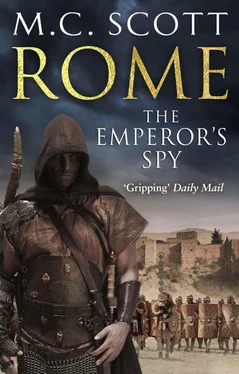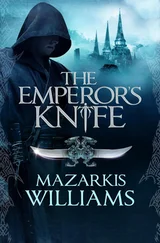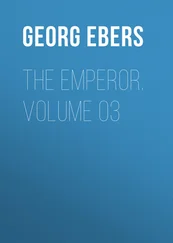M. Scott - Rome - The Emperor's spy
Здесь есть возможность читать онлайн «M. Scott - Rome - The Emperor's spy» весь текст электронной книги совершенно бесплатно (целиком полную версию без сокращений). В некоторых случаях можно слушать аудио, скачать через торрент в формате fb2 и присутствует краткое содержание. Жанр: Исторические приключения, на английском языке. Описание произведения, (предисловие) а так же отзывы посетителей доступны на портале библиотеки ЛибКат.
- Название:Rome: The Emperor's spy
- Автор:
- Жанр:
- Год:неизвестен
- ISBN:нет данных
- Рейтинг книги:3 / 5. Голосов: 1
-
Избранное:Добавить в избранное
- Отзывы:
-
Ваша оценка:
- 60
- 1
- 2
- 3
- 4
- 5
Rome: The Emperor's spy: краткое содержание, описание и аннотация
Предлагаем к чтению аннотацию, описание, краткое содержание или предисловие (зависит от того, что написал сам автор книги «Rome: The Emperor's spy»). Если вы не нашли необходимую информацию о книге — напишите в комментариях, мы постараемся отыскать её.
Rome: The Emperor's spy — читать онлайн бесплатно полную книгу (весь текст) целиком
Ниже представлен текст книги, разбитый по страницам. Система сохранения места последней прочитанной страницы, позволяет с удобством читать онлайн бесплатно книгу «Rome: The Emperor's spy», без необходимости каждый раз заново искать на чём Вы остановились. Поставьте закладку, и сможете в любой момент перейти на страницу, на которой закончили чтение.
Интервал:
Закладка:
The promised storm from the day before had not yet come; the morning was set fair, with white goosedown clouds flying before a brisk wind. Ahead, the sky met the earth in a long, smooth arc that left Pantera slightly giddy. After the mountains of Britain, it was strange to be in a place with no hills to carve open the perfect spread of the horizon.
The grassy plain that stretched from the magistrate’s residence to the hippodrome was open and flat. If a man was intent on exposing himself to danger, it was not a bad place to choose. No hills broke the perfect hemisphere of the horizon, no spinneys hid the horses of a mounted ambush, no rocky outcrops served to hide a company of archers, or spearmen, or armoured infantry. But the traders’ stalls, healers’ booths and cooking fires that lay sprawled in a veritable village to the left of the sawdust pathway were a nightmare of open possibilities and the horse barns beyond were worse: four long, low buildings with shadowed doorways along their lengths and narrow grassed alleyways between.
At the nearest end, almost blocking the path between the barns, clusters of tents marked the professions that kept each team running: the wainwrights, the harness-makers, the loriners, the boys who boiled the axle grease, the weavers who made the banners. Above each flew the colours allocated for this race: Red at the front for the magistrate, then Blue, then White and finally the Green of the home team.
‘The Red team will win, of course,’ Nero said. ‘The horses were a gift to the magistrate from the king of Parthia, who wishes to buy our favour and does it by flattering our friends. That team we cannot buy, and so our task for today is to decide which of the other three teams is worthy of our attentions and our gold. They are the best in Gaul. One of them must be good enough.’
Following the emperor’s gaze, Pantera saw a team of four grey colts grazing at the side of the track further down near the hippodrome. As yet they bore no ribbons in their manes to identify them, but even at this distance, with the high walls of the wooden hippodrome behind, it was clear these four were of a different stamp to their thicker, heavier brethren who ran for the other teams.
Pantera had lived five years in Britain where the tribes prided themselves on breeding horses to beat the world. The women of those horse runs would have given an entire year’s crop of colts for even the least of these.
Pointing, he said, ‘That’ll be the Red team there? The four matched greys? They look fit to beat anything Gaul could produce. Are they the magistrate’s gift?’
‘They must be. Come.’ Nero’s cheeks dimpled with the pleasure of finally finding a man who understood his passion. Together, he and Pantera turned back towards the training track.
The magistrate’s team of gift-horses was momentarily blocked from sight by the passing of two other beribboned teams — chestnut colts sporting Blue and a team of blacks spectacular in White — already hitched and warming up ostentatiously before groups of watchful gamblers who changed the odds with each slow circuit. Knowing they were watched, the drivers trotted sunwise on the thick layer of sawdust, showing off their paces, but not tiring their horses. In the race, they travelled in the opposite direction; knowing this made the difference.
The colts in both teams were snappy and moody, snaking bites at their teammates and opponents. Their drivers called to them, cajoling and threatening in turn. Other men ran alongside, shouting instructions and encouragement, or calling for a stop to change the set of the harness. Only the local Coriallum team was not out yet, and still last in the betting.
The grey colts grazing at the track’s end had not even been harnessed, which said a lot for the confidence of their driver, but even as the emperor’s party turned to watch, two boys in the magistrate’s livery began to weave ribbons of brightest scarlet into their manes, leaving the ends hanging loose to fly back as banners with their speed.
Appreciatively, Nero said, ‘They’re built of the wind, with desert storms in their blood and stars lighting their feet. They’ll win today unless each of them breaks a leg; they outmatch the others by more than a track’s length without trying.’
‘If you wanted to buy a team to race in Rome, surely these are they?’ Pantera asked.
‘But Cornelius Proculus, the magistrate, has long been our friend, and these are his heart’s joy; it would be theft for us to buy them from him. In any case, they may be fast as the wind now, but they won’t stay that way for long.’
To Pantera’s frustration and the evident consternation of the Ubian guards, Nero turned away from the peeled hazel barrier at the edge of the training track and turned left towards a leather-worker’s stand set back amongst half a dozen others, where he fingered a tooled woman’s belt with images of storks and cranes set about it, the better to bring on a child.
To Pantera, he said, ‘Parthian horses are weak in the hocks and can’t manage the constant tight turns of a chariot track for more than half a season. We need horses that will last all year, if not longer. There will be another team here today that will be the one to take with us to Rome. We will buy it, and its driver, and all who come with it, and make it our own. In time, if the horses prove suitable, we will race them ourselves.’
A wave of a finger saw one of the Ubians reach into his purse to buy the belt.
The stall-tender, crimson with shock, or pleasure, or terror, fell to his knees, protesting in halting Latin that it must be a gift, that he could not possibly accept money from his emperor whom he adored and who was doing him the most exceptional honour of attending his unworthy stall.
He was given a gold coin in any case, which was a hundred times the worth of what he might have dared ask for the belt. The air rang with the emperor’s praises as they passed on.
Notoriously, Nero said of himself that he was the most popular emperor Rome had ever seen. In Coriallum in northern Gaul, if only on that day, it was true.
The imperial group moved deeper into the sprawl of booths and stalls. Pie-vendors bawled their wares. Bolts of woollen cloth, plain or dyed, lay in neat rows on wooden planks, to be untidied by a thousand feeling fingers by the day’s end. A healer’s booth was marked by a rag of torn white linen showing that the occupant was a woman and would undertake a childbirth. Closer to the horses, harness-makers plied their wares. Nero stopped at several to feel the quality of the leather, but, to the chagrin of the vendors, did not buy.
Keeping abreast of his emperor, watching ahead on both sides for signs of ill intent, Pantera said, ‘Talk in the tavern this morning was that the team of black colts from Gallia Lugdunensis running under the White banner might win the race if the magistrate’s horses all died in the traces. Blue and Green were not words on the lips of anyone sober enough to think.’
‘Truly?’ Nero raised a delicately plucked brow. ‘The magistrate seemed to think the local team was good. But they drew Green in the lottery for colour, and while it may be for Ceres and the vernal season, in our experience it is always unlucky. Perhaps we make it so by believing it; we are emperor and such things are not unknown, but it cannot be changed. Come, we shall go to the horse barns and view the second teams. Sometimes the ones that do not race are better than those that do.’
Pantera spun in alarm. ‘My lord, as your bodyguard, I must protest-’
He fell silent as Nero caught his arm. Men around them looked away, too quickly. The Ubians raced forward, laying hands to their sword hilts, but not yet drawing. Akakios was already there. His knife blade glanced in the blustery sun. Its tip was dulled with a brown, waxy resin.
Читать дальшеИнтервал:
Закладка:
Похожие книги на «Rome: The Emperor's spy»
Представляем Вашему вниманию похожие книги на «Rome: The Emperor's spy» списком для выбора. Мы отобрали схожую по названию и смыслу литературу в надежде предоставить читателям больше вариантов отыскать новые, интересные, ещё непрочитанные произведения.
Обсуждение, отзывы о книге «Rome: The Emperor's spy» и просто собственные мнения читателей. Оставьте ваши комментарии, напишите, что Вы думаете о произведении, его смысле или главных героях. Укажите что конкретно понравилось, а что нет, и почему Вы так считаете.












